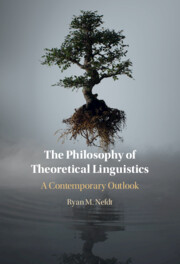Book contents
5 - Context and Pragmatics
Published online by Cambridge University Press: 25 April 2024
Summary
Linguistic pragmatics is one of the fastest growing fields in contemporary theoretical linguistics. It grew from the influential work of philosophers such as Grice, Austin, Stalnaker, Lewis, and others on context and communicative inferences. It engages directly with general rationality, theory of mind, and systems of intention. One of the major debates in pragmatics has been where to precisely draw the line between semantic phenomena and pragmatic phenomena. In this chapter, three classical and influential ideas on the nature of pragmatics, courtesy of Grice (1975), Stalnaker (1978), and Lewis (1979), are discussed. This discussion leads to three further general philosophical frameworks for separating semantic from pragmatic processes and analyses that have roots in the aforementioned triumvirate: (P1) the indexical conception, (P2) the cognitivist conception, and (P3) social-inferential conception. Each option offers a different demarcation. Finally, three linguistic theories of pragmatics are selected as candidate representations of the contemporary state of the art: (L1) optimality-theoretic pragmatics, (L2) game-theoretic pragmatics, and (L3) Bayesian pragmatics. It’s shown that each of these prominent frameworks exploit the philosophical demarcations (P1–P3) presented to different degrees.
Keywords
- Type
- Chapter
- Information
- The Philosophy of Theoretical LinguisticsA Contemporary Outlook, pp. 108 - 136Publisher: Cambridge University PressPrint publication year: 2024

